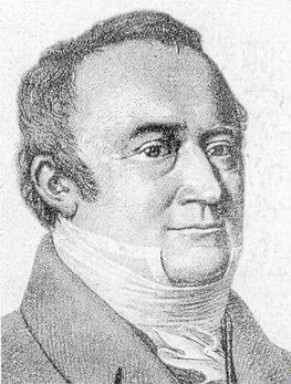Ernst Friedrich, Baron Von Schlotheim on:
[Wikipedia]
[Google]
[Amazon]
 Ernst Friedrich, Freiherr von Schlotheim (2 April 176428 March 1832),
Ernst Friedrich, Freiherr von Schlotheim (2 April 176428 March 1832),
 Ernst Friedrich, Freiherr von Schlotheim (2 April 176428 March 1832),
Ernst Friedrich, Freiherr von Schlotheim (2 April 176428 March 1832), German
German(s) may refer to:
* Germany, the country of the Germans and German things
**Germania (Roman era)
* Germans, citizens of Germany, people of German ancestry, or native speakers of the German language
** For citizenship in Germany, see also Ge ...
palaeontologist
Paleontology, also spelled as palaeontology or palæontology, is the scientific study of the life of the past, mainly but not exclusively through the study of fossils. Paleontologists use fossils as a means to classify organisms, measure geolo ...
and politician, was born in Allmenshausen, Schwarzburg-Sondershausen
Schwarzburg-Sondershausen was a small principality in Germany, in the present day state of Thuringia, with its capital at Sondershausen.
History
Schwarzburg-Sondershausen was a county (earldom) until 1697. In that year, it became a principal ...
.
He was Privy Councillor and President of the Chamber at the court of Gotha
Gotha () is the fifth-largest city in Thuringia, Germany, west of Erfurt and east of Eisenach with a population of 44,000. The city is the capital of the district of Gotha and was also a residence of the Ernestine Wettins from 1640 until the ...
. Becoming interested in geology
Geology (). is a branch of natural science concerned with the Earth and other astronomical objects, the rocks of which they are composed, and the processes by which they change over time. Modern geology significantly overlaps all other Earth ...
he gathered a very extensive collection of fossil
A fossil (from Classical Latin , ) is any preserved remains, impression, or trace of any once-living thing from a past geological age. Examples include bones, shells, exoskeletons, stone imprints of animals or microbes, objects preserve ...
s. In 1804 he published descriptions and illustrations of remarkable remains of (Carboniferous
The Carboniferous ( ) is a Geologic time scale, geologic period and System (stratigraphy), system of the Paleozoic era (geology), era that spans 60 million years, from the end of the Devonian Period Ma (million years ago) to the beginning of the ...
) plants, ''Ein Beitrag zur Flora der Vorwelt''.
His more important work was entitled ''Die Petrefactenkunde'' (1820). In this he incorporated the plates used in his previous memoir and supplemented it by a folio atlas (1822), in which he illustrated his collection of petrified and fossil remains of the animal and vegetable kingdom of a former world. For the first time in Germany the fossils were named according to the binomial system of Linnaeus
Carl Linnaeus (23 May 1707 – 10 January 1778), also known after ennoblement in 1761 as Carl von Linné,#Blunt, Blunt (2004), p. 171. was a Swedish biologist and physician who formalised binomial nomenclature, the modern system of naming o ...
. His specimens are preserved in the Berlin
Berlin ( ; ) is the Capital of Germany, capital and largest city of Germany, by both area and List of cities in Germany by population, population. With 3.7 million inhabitants, it has the List of cities in the European Union by population withi ...
Museum. He died at Gotha
Gotha () is the fifth-largest city in Thuringia, Germany, west of Erfurt and east of Eisenach with a population of 44,000. The city is the capital of the district of Gotha and was also a residence of the Ernestine Wettins from 1640 until the ...
.
References
{{DEFAULTSORT:Schlotheim, Friedrich, Baron von 1764 births 1832 deaths People from Kyffhäuserkreis People from Schwarzburg-Sondershausen German paleontologists 18th-century German zoologists